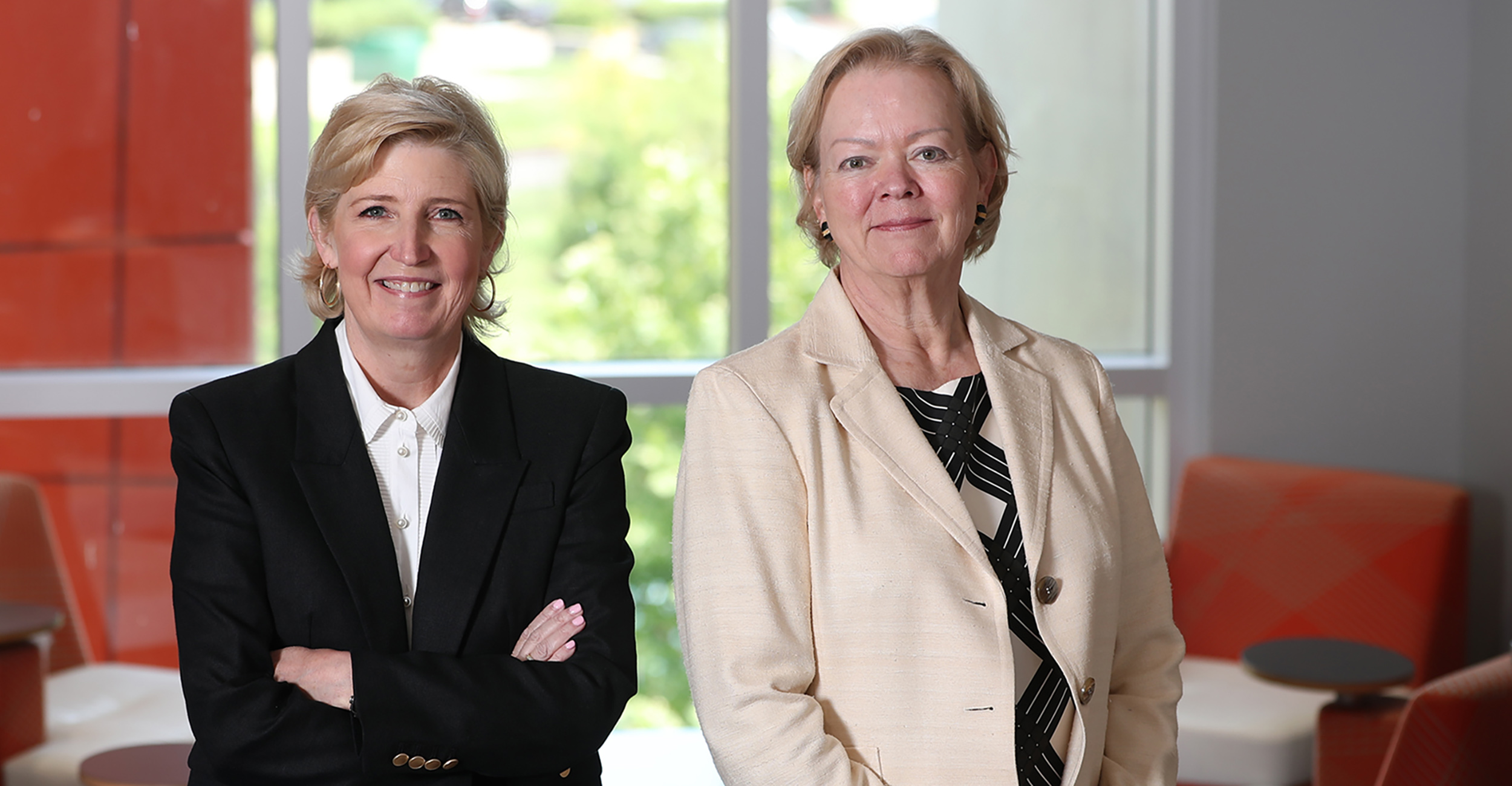
CHSI partnership makes impact on safety and quality of health care
Monday, June 10, 2024
Media Contact: Terry Tush | Director, Marketing and Communications | 405-744-2703 | terry.tush@okstate.edu
The Center for Health Systems Innovation at Oklahoma State University recently teamed up with the Leapfrog Group (LFG) to help make widespread, direct impacts on the quality and safety of health care across the country.
The LFG is a national nonprofit organization based out of Washington, D.C., working to improve and monitor the quality and safety of American hospitals. It does this through its voluntary Leapfrog Hospital Survey, which asks hospitals to take an introspective look into the numerous safety measures, operational procedures and outcomes within its facilities, then report those findings. The group calculates a cumulative score on these safety measures, which includes areas such as infections, surgery safety and protocols to help prevent errors.
“The survey is a great tool, both for the prospective patient and for the hospitals themselves,” said Marjorie Erdmann, CHSI director. “The results provide a database which allows for evaluation of health care facilities and can be used by consumers to find the safest options for their health care. It also allows hospitals to audit and identify areas for improvement and develop better safety standards.”
The surveys are annual and launch each spring. Some hospital CEOs have been reluctant to participate, saying they didn’t have the staff available to dedicate to this survey. The CHSI team asked questions that would lead to groundbreaking discoveries: Do we know what it takes for a hospital to complete this survey? What are we asking hospitals to do? The conclusion from CHSI was that there was a barrier to participation because the breadth and depth of this undertaking wasn’t completely understood.
CHSI decided to find out what it takes to complete the survey, teaming up with the Oklahoma State University Medical Center, a facility that had never participated in the voluntary survey and was willing to try conducting it. This provided a real-world account of the resources and time spent. LFG provided technical support for the research and sought the results.
The findings were unexpected.
The team found that in some instances, the time needed for a department to gather necessary information and complete its section report could take nearly 80 hours of dedicated work. Once the investigation was completed, a final consultative report was delivered to Leapfrog in December 2023. A debriefing took place in January 2024, and LFG immediately took action to make improvements to its 2024 survey that launched in April.
"In studying the effort, we encountered and logged multiple barriers and points of confusion where we could imagine a new participant would likely give up,” Erdmann said. “So, instead of just recording and moving on, we innovated solutions to clarify and improve the process. Most importantly, we refined foundational elements that could be used by all first-time survey hospitals.”
To date, many new policies and procedures have been implemented by LFG to make the process as streamlined and provide as much support as possible.
"The findings from this unique study were used by Leapfrog to make significant enhancements to its survey operations,” said Missy Danforth, LFG’s senior vice president for health care ranking. “These enhancements are in direct response to the insightful feedback we received.”
The enhancements implemented include:
- Beginning April 1, when hospital or ambulatory surgery center (ASC) staff download a hard copy of the Leapfrog Hospital or ASC Survey, they will get a pop-up asking if they want to schedule a one-on-one orientation call with the LFG help desk.
- Updating the description of the LFG help desk to reinforce the qualifications of the help desk coordinators and the expertise they provide.
- A Leapfrog Hospital Survey Bootcamp was held to educate new and first-time survey participants on the differences between the survey and safety grade and provide a step-by-step overview of first-time survey participation. LFG received phenomenal feedback and covered many of the topics outlined in the study as areas of confusion.
- A second webinar is scheduled to educate new and first-time survey participants on how measures from the Leapfrog Hospital Survey are used in the Hospital Safety Grade.
Another key outcome of the research important for hospital CEOs and quality improvement department leaders was untangling and detailing the connection between the survey responses and Leapfrog’s other hospital ranking, the Safety Grade. The programs are now better delineated and specified by LFG.
“As consumers, we do a great job of researching the best place to buy a hamburger or a car,” said Cari Marshall, practice facilitator for CHSI and northeast Oklahoma regional leader for LFG. “Why don’t we have the same mindset and thoroughness in researching our health care? I urge all hospital systems to participate as this truly is a win-win situation. They either share evidence that highlights their strengths, or they use the survey to improve the safety of health care they provide to their patients.”
The survey is one way hospitals can share their efforts and help patients be more strategic in managing their own health decisions. By making the survey process easier for the over 2,300 hospitals that currently participate in the program and improving support for new health care facilities to take part, the research contributed to LFG’s efforts to make hospitals safer.
CHSI partners with health care organizations to improve care through workflow, care design and technology innovation. To partner with CHSI, please connect with marjorie.erdmann@okstate.edu.
For the published research “Transparency in Hospital Safety: A case study of ‘what it takes’ for hospitals to complete the Leapfrog Group Hospital Survey,” click here.
For more information about CHSI, click here.
